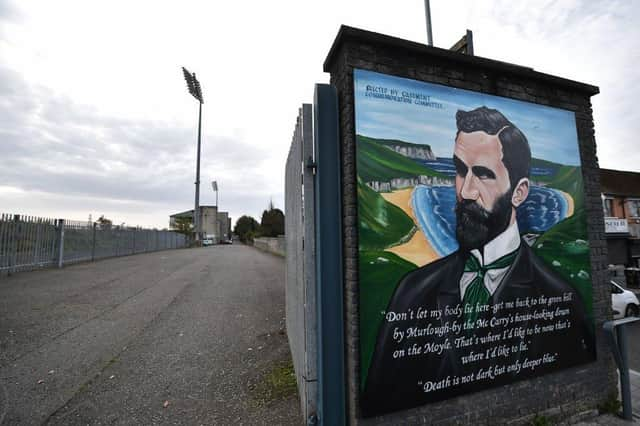Letter: Why should Northern Ireland be linked in the eyes of the world with Sir Roger Casement?


With reference to the very informative column on April 22 by Owen Polley (GAA’s Burns pleads nationalist grievances in bid for extra cash) referring to, among other things, the Casement Park development project, may I be permitted to add some little addition.
Sir Roger Casement was a career diplomat and administer in the British foreign service. He was born in Dublin on September 1, 1864, raised by foster parents in Co Antrim and educated at Ballymena Academy.
Advertisement
Hide AdAdvertisement
Hide AdHe was knighted in 1911 by King George V for his service to humanity during a period of overseas colonial postings in Africa some five years previous. He had joined the Gaelic League in Ireland in 1904, becoming sympathetic towards Irish home rule. This led to him becoming actively involved in seeking assistance from Germany when the United Kingdom of Great Britain and Ireland was engaged in war with Germany (1914-18).
Casement was arrested after coming ashore from a German submarine off the coast of Co Cork in 1916 following an abortive attempt to smuggle arms for an Irish planned uprising against British rule in Ireland.
He was convicted by a British court in 1916 of treasonable acts of war. Treason was described as betraying a nation or its sovereign by acts incurring or levying war against the government or giving aid or comfort to its enemies.
He was found guilty in June 1916 and hanged at Pentonville prison, London, on August 3, 1916. After an elaborate funeral in February 1965 after exhumation, his remains were buried at Glasnevin Cemetery in Dublin.
Advertisement
Hide AdAdvertisement
Hide AdHis name is revered in Irish republicanism as a national hero. Sir Roger Casement Gaelic Football Park and Athletics Grounds in Belfast is so named in his honour. This is the same Casement Park that currently efforts are being strenuously made to have it promoted as an iconic site to host a prestigious worldwide association football event in 2028.
In this context, it is proposed that the name (Sir Roger) Casement Park will be sounded out to the world at large.
I don’t suppose the world cares a hoot or even knows, but we know, and that is what matters.
Why, I ask, should the name of Northern Ireland be coupled with the name of Sir Roger Casement abroad? Do we ever hear of the name Quisling Park or Mussolini Park or Ernst Rohm Park noised abroad as an expression of nationalism? No.
Advertisement
Hide AdAdvertisement
Hide AdIs it likely that the name Casement will be dropped? Very unlikely.
Should the project actually go ahead, would there be a name change to Belfast Park, Unity Park, Falls Road Park, Gaelic Park or such like or any other? Very unlikely.
Unionists swallow hard and learn to live with such things as currently the name (Sir Roger) Casement Park will be rubber stamped and noised abroad to the world at large as the embodiment of Northern Ireland.
Thomas Glenny, Craigavon